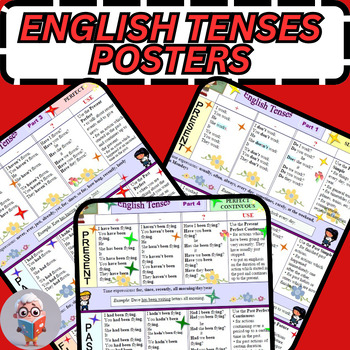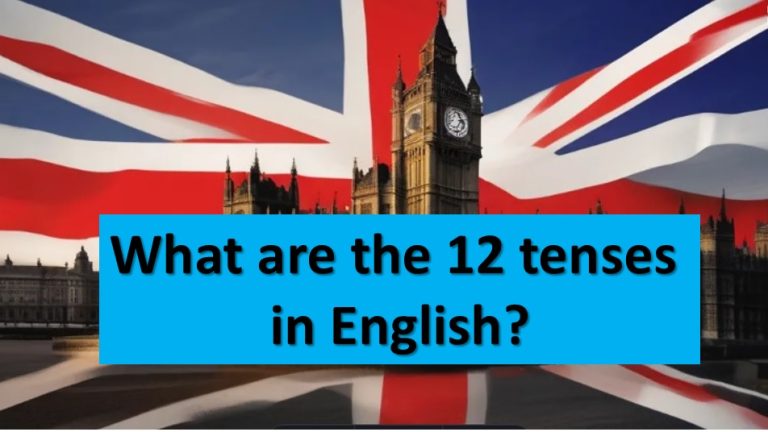Mastering Tenses: A Complete Information for Class 9 College students
Associated Articles: Mastering Tenses: A Complete Information for Class 9 College students
Introduction
With enthusiasm, let’s navigate by way of the intriguing matter associated to Mastering Tenses: A Complete Information for Class 9 College students. Let’s weave attention-grabbing info and supply recent views to the readers.
Desk of Content material
Mastering Tenses: A Complete Information for Class 9 College students

Grammar, typically perceived as a dry and tedious topic, turns into a robust device when understood accurately. For Class 9 college students, a agency grasp of tenses is essential for efficient communication, each written and spoken. Tenses, primarily, are the types of verbs that present the time of an motion or state of being. This text goals to supply an in depth understanding of tenses, providing a complete chart and examples to solidify your studying.
Understanding the Fundamentals: The Three Most important Tenses
The muse of English tenses rests on three main tenses:
- Current Tense: This tense describes actions occurring now, habits, common truths, or scheduled future occasions.
- Previous Tense: This tense describes actions that occurred up to now, accomplished actions, or previous habits.
- Future Tense: This tense describes actions that can occur sooner or later, plans, or predictions.
Every of those primary tenses additional branches into varied kinds, including nuances to the expression of time. Let’s discover these sub-categories intimately.
I. The Current Tense
The current tense encompasses 4 primary kinds:
-
Easy Current Tense: This tense is used for routine actions, common truths, and everlasting states. It’s shaped utilizing the bottom type of the verb (for I/you/we/they) or including "-s" or "-es" for (he/she/it).
-
Examples:
- I go to high school each day. (Recurring motion)
- The solar rises within the east. (Common reality)
- She works as a health care provider. (Everlasting state)
- He performs the guitar. (Recurring motion)
- It rains so much on this area. (Common reality)
-
Examples:
-
Current Steady Tense (Progressive Tense): This tense is used for actions occurring in the mean time of talking, momentary actions, or future preparations. It’s shaped utilizing the auxiliary verb "to be" (am/is/are) + the current participle (-ing type of the verb).
-
Examples:
- I am studying a guide. (Motion occurring now)
- They are enjoying soccer. (Motion occurring now)
- She is learning for her exams. (Short-term motion)
- He is leaving for London tomorrow. (Future association)
- We are having a celebration subsequent week. (Future association)
-
Examples:
-
Current Excellent Tense: This tense is used for actions accomplished at an unspecified time up to now, actions that began up to now and proceed to the current, or current accomplished actions. It’s shaped utilizing the auxiliary verb "have/has" + the previous participle (-ed for normal verbs, or irregular previous participle).
-
Examples:
- I have completed my homework. (Accomplished motion at unspecified time)
- She has lived on this metropolis for ten years. (Motion began up to now and continues to current)
- They have simply arrived. (Current accomplished motion)
- He has eaten all of the cake. (Accomplished motion at unspecified time)
- We have seen that film earlier than. (Accomplished motion at unspecified time)
-
Examples:
-
Current Excellent Steady Tense: This tense emphasizes the length of an motion that began up to now and continues to the current. It’s shaped utilizing "have/has" + "been" + the current participle (-ing type of the verb).
-
Examples:
- I have been ready for you for an hour. (Period emphasised)
- She has been working on this venture for months. (Period emphasised)
- They have been enjoying cricket since morning. (Period emphasised)
- He has been studying French for 2 years. (Period emphasised)
- We have been learning all day. (Period emphasised)
-
Examples:
II. The Previous Tense
The previous tense additionally has 4 primary kinds:
-
Easy Previous Tense: This tense describes accomplished actions up to now. It’s shaped utilizing the previous easy type of the verb (-ed for normal verbs, or irregular previous easy kind).
-
Examples:
- I walked to high school yesterday.
- She performed the piano.
- He went to the market.
- They studied arduous for the examination.
- We ate dinner at 7 pm.
-
Examples:
-
Previous Steady Tense: This tense describes actions in progress at a selected time up to now. It’s shaped utilizing "was/had been" + the current participle (-ing type of the verb).
-
Examples:
- I was watching TV at 8 pm.
- She was cooking dinner when the cellphone rang.
- He was sleeping when the alarm went off.
- They had been enjoying playing cards final night time.
- We had been speaking about our plans.
-
Examples:
-
Previous Excellent Tense: This tense describes an motion accomplished earlier than one other motion up to now. It’s shaped utilizing "had" + the previous participle.
-
Examples:
- I had completed my work earlier than he arrived.
- She had gone to mattress earlier than I known as.
- He had eaten all of the cookies.
- They had left earlier than the storm started.
- We had seen the film already.
-
Examples:
-
Previous Excellent Steady Tense: This tense describes an motion that continued for a time frame earlier than one other motion up to now. It’s shaped utilizing "had been" + the current participle.
-
Examples:
- I had been working on that venture for months earlier than it was lastly accomplished.
- She had been ready for him for hours.
- He had been learning all night time.
- They had been enjoying soccer since midday.
- We had been planning this journey for ages.
-
Examples:
III. The Future Tense
The long run tense is expressed in a number of methods:
-
Easy Future Tense: This tense expresses actions that can occur sooner or later. It’s shaped utilizing "will/shall" + the bottom type of the verb. "Shall" is mostly used with "I" and "we," however "will" is extra frequent in fashionable English.
-
Examples:
- I will go to the park tomorrow.
- She will go to her grandparents subsequent week.
- He will purchase a brand new automotive.
- They will journey to Europe.
- We will attend the assembly.
-
Examples:
-
Future Steady Tense: This tense describes actions that can be in progress at a selected time sooner or later. It’s shaped utilizing "will/shall be" + the current participle.
-
Examples:
- I can be working tomorrow.
- She can be attending a convention subsequent month.
- He can be enjoying soccer at 3 pm.
- They can be having dinner at 8 pm.
- We can be touring to India.
-
Examples:
-
Future Excellent Tense: This tense describes an motion that can be accomplished earlier than a selected time sooner or later. It’s shaped utilizing "will/shall have" + the previous participle.
-
Examples:
- I can have completed my work by 5 pm.
- She can have accomplished her research by subsequent 12 months.
- He can have written the report by Friday.
- They can have arrived by then.
- We can have eaten dinner by 8 pm.
-
Examples:
-
Future Excellent Steady Tense: This tense describes an motion that can have been in progress for a time frame earlier than a selected time sooner or later. It’s shaped utilizing "will/shall have been" + the current participle.
-
Examples:
- I can have been residing right here for 5 years subsequent month.
- She can have been working on this venture for 2 years by then.
- He can have been learning for 3 years by the point he graduates.
- They can have been touring for six months by the point they return.
- We can have been ready for hours by the point they arrive.
-
Examples:
Complete Chart of Tenses
| Tense | Affirmative | Adverse | Interrogative |
|---|---|---|---|
| Easy Current | He performs. | He doesn’t play. | Does he play? |
| Current Cont. | He’s enjoying. | He isn’t enjoying. | Is he enjoying? |
| Current Excellent | He has performed. | He has not performed. | Has he performed? |
| Current Perf. Cont. | He has been enjoying. | He has not been enjoying. | Has he been enjoying? |
| Easy Previous | He performed. | He didn’t play. | Did he play? |
| Previous Cont. | He was enjoying. | He was not enjoying. | Was he enjoying? |
| Previous Excellent | He had performed. | He had not performed. | Had he performed? |
| Previous Perf. Cont. | He had been enjoying. | He had not been enjoying. | Had he been enjoying? |
| Easy Future | He’ll play. | He won’t play. | Will he play? |
| Future Cont. | He can be enjoying. | He won’t be enjoying. | Will he be enjoying? |
| Future Excellent | He can have performed. | He won’t have performed. | Will he have performed? |
| Future Perf. Cont. | He can have been enjoying. | He won’t have been enjoying. | Will he have been enjoying? |
This chart gives a concise overview. Keep in mind to follow utilizing these tenses in varied sentence constructions to actually grasp them. Common follow with workout routines and real-life functions is vital to solidifying your understanding. By persistently making use of the foundations and examples offered, you’ll construct a powerful basis in English grammar, essential to your tutorial success and past. Keep in mind to seek the advice of your textbook and instructor for additional clarification and extra workout routines. Good luck!





.png)

Closure
Thus, we hope this text has offered worthwhile insights into Mastering Tenses: A Complete Information for Class 9 College students. We respect your consideration to our article. See you in our subsequent article!
